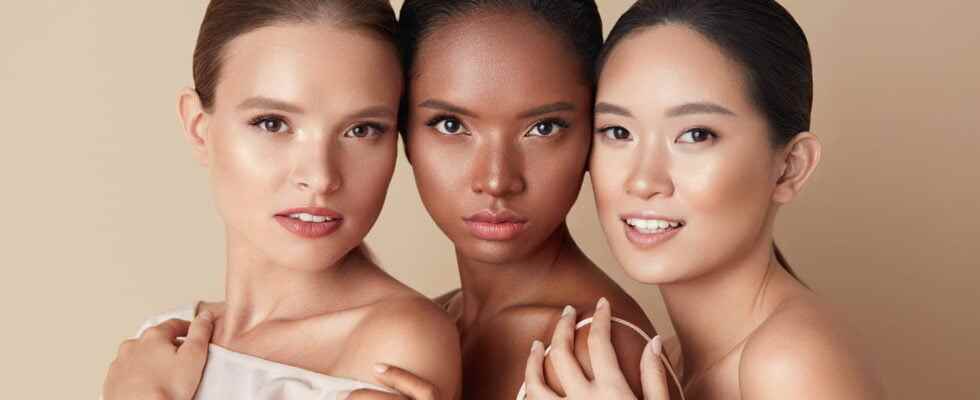Thanks to non-gendered cosmetics, more represented skin tones and a diversity of beauty at all ages, brands have enabled more inclusive beauty. Focus on all the beauty codes that have finally evolved and the brands that play the game of inclusive beauty.
Until now, the beauty industry has mainly turned its products towards a precise archetype, targeting women, young, with fair skin. But that was before the emergence of the inclusive beauty, advocated by more and more brands.
What is inclusive beauty?
Brands are now highlighting all beauties by developing cosmetic products that can be suitable for all skin types, all genders and all ages. Inclusive beauty breaks down barriers of color, gender and age to offer a world of beauty open to all.
What are the inclusive beauty brands?
Long considered, wrongly, as a niche market, cosmetics intended for black or asian skin was almost non-existent. The year 2017 marks a turning point for these under-represented skin tones thanks to Fenty Beauty, the beauty brand launched by Rihanna, which has truly democratized inclusive beauty. The best factor in measuring a brand’s inclusiveness is the number of shades of hold it offers. If until now, brands have displayed a handful of shades, Fenty Beauty offers a very wide range available in 50 shades. Same observation at Rare Beauty, Selena Gomez’s make-up brand, which has 48 shades on the counter, covering as many skin tones as possible.
No more gendered makeup
Because men are more and more interested in their beauty, new generation cosmetics are no longer exclusively intended for women. Inclusive beauty thus offers men the opportunity to wear makeup and take care of their skin. And even the big luxury houses are getting started since Chanel launched the range Boy of Chanel which includes foundations, eyeliners, concealers and nail polish, designed for these gentlemen. Other brands go even further, pushing the straitjacket of the genre even further in makeup. Milk Makeup, Marc Jacobs and even NYX Cosmetics advocate a genderless beauty, showing both men and women in their advertising campaigns.
When beauty is no longer old
Inclusive beauty is also emancipated from diktat of eternal youth, often represented in brand advertising campaigns highlighting very young models. Gone are the promises of appearing “ten years younger”: now, beauty is assumed at all ages, from the youngest to the most mature. This beauty precept was highlighted in particular by the British edition of Vogue, in collaboration with L’Oreal Paris, in 2019. For its May cover, the magazine called on Jane Fonda (81 years old during the photoshoot), for her issue “The Non Issue” celebrating ageless beauty.
